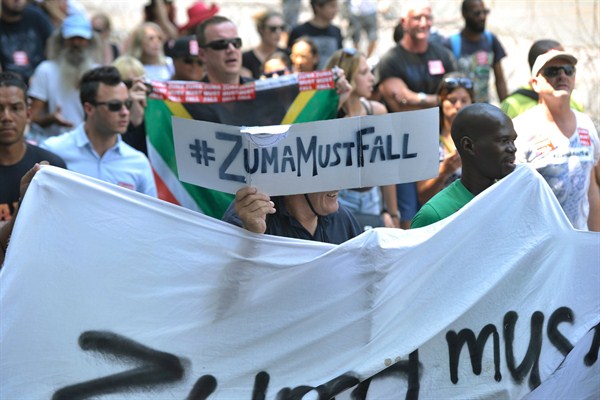Even by the turbulent standards of Jacob Zuma’s presidency, 2016 has been a rough year for South Africa, as a series of economic and political convulsions have shaken the country. Local elections are set for Aug. 3 against a backdrop of weak governance, a flailing economy, and profound divisions within the ruling African National Congress (ANC). While the ANC’s opponents on the right and the left should be able to seize on this uncertainty at the polls, next month’s electoral outcome will reveal much about the opposition’s prospects for ending the ANC’s dominance in the next general election in 2019.
When Zuma assumed the presidency in 2009, South Africa entered an era in which its politics would be defined by crisis management and damage control. Embroiled in scandals, both personal and political, Zuma has been incapable of providing any strategic vision or giving the kind of attention to South Africa’s complex problems reasonably expected from a head of government. Instead, his energies have been absorbed fighting political fires and struggling for survival amid a constant clamor for his resignation from opposition parties. But 2016 has taken this to a new level.
Last December, South Africa reached a nadir under Zuma when it found itself with three finance ministers within a week. First Zuma sacked the respected Nhlanhla Nene, whose policies increasingly threatened Zuma’s patronage networks and allies. His replacement by the unknown David van Rooyen caused a meltdown in the markets, which prompted Zuma to sack van Rooyen and reluctantly reappoint Pravin Gordhan, a former finance minister. As with Nene, Gordhan’s appointment has produced a clash of political cultures within the government, with the technocratic Gordhan versus the clientelist Zuma.

